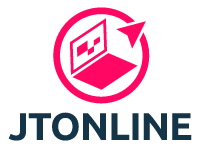In the realm of journalism, ethics and objectivity are foundational elements that ensure the credibility and reliability of news reporting. Upholding these standards is crucial for maintaining public trust and fostering an informed society. For news portals, adhering to ethical guidelines is not just a professional obligation but also a necessary practice to provide accurate, unbiased information. Ensuring objectivity in news coverage is vital to preserving the integrity of journalism and supporting democratic processes.
Principles of Ethics in Journalism
The core principles of ethics in journalism serve as a framework for professional conduct and decision-making. These principles include truthfulness, accuracy, fairness, and transparency. Truthfulness requires journalists to report facts as they are, without distortion or omission. This commitment to accuracy ensures that information presented to the public is reliable and verifiable.
Objectivity is another fundamental principle, demanding that journalists present news impartially, without allowing personal biases or opinions to influence their reporting. This principle helps in providing a balanced perspective on issues, enabling readers to form their own informed opinions. Fairness involves giving all relevant sides of a story equal consideration, ensuring that no viewpoint is unjustly marginalized or misrepresented.
Transparency in journalism means being open about the sources of information and the methods used to gather it. This openness allows readers to assess the credibility of the news and understand the context in which it was reported. By adhering to these ethical principles, journalists can build and maintain the trust of their audience, which is essential for the functioning of a healthy, democratic society.
Tools and Approaches to Maintaining Objectivity
Maintaining objectivity in journalism requires deliberate and systematic efforts. Various methods and tools are employed to minimize subjectivity in news reporting. One effective approach is the implementation of editorial standards and ethical codes. These guidelines provide a clear set of rules and expectations for journalists to follow, helping to ensure consistency and fairness in reporting.
Fact-checking is a critical tool in maintaining objectivity. News organizations often have dedicated fact-checking teams responsible for verifying the accuracy of information before it is published. This process involves cross-referencing data with multiple credible sources and scrutinizing the evidence to eliminate errors and biases.
Another method is the use of balanced sourcing. Journalists are encouraged to seek input from a diverse range of sources, representing different perspectives on an issue. This practice helps to provide a more comprehensive and impartial view of the story. Editorial reviews and peer assessments also play a significant role. Articles are often reviewed by multiple editors to identify and address any potential biases or inaccuracies before publication.
Ethical training for journalists is also essential. Regular workshops and seminars on media ethics and objectivity can equip journalists with the knowledge and skills needed to navigate ethical dilemmas and maintain high standards of reporting. By adopting these tools and approaches, news portals can uphold objectivity and deliver trustworthy news to their audience.
Dangers and Challenges in Maintaining Ethical Standards
Maintaining ethical standards in journalism is fraught with challenges, particularly in the fast-paced digital age. One major problem is the pressure to publish quickly. The rapid dissemination of news via social media and online platforms can lead to rushed reporting, where accuracy and thoroughness are compromised in favor of speed. This urgency often results in the spread of misinformation and half-truths.
- The influence of social media adds another layer of complexity. Platforms like Twitter and Facebook amplify the reach of news but also expose journalists to widespread public scrutiny and instant feedback. The desire to attract clicks and shares can tempt news portals to prioritize sensationalism over substance, undermining ethical reporting.
- Commercial pressures also pose significant challenges. The need to generate revenue through advertisements and subscriptions can sometimes conflict with the principles of ethical journalism. There is a risk that news organizations might cater to the preferences of advertisers or audiences at the expense of objectivity and impartiality.
- Additionally, journalists face the challenge of navigating political and ideological biases. In a polarized media landscape, maintaining neutrality can be difficult, as journalists might be perceived as aligning with particular political or social agendas. Overcoming these challenges requires a steadfast commitment to ethical standards and the implementation of robust editorial practices.
The Role of Readers and the Public in Maintaining Ethical Standards
Readers and the public play a crucial role in upholding ethical standards in journalism. Public opinion and reader reactions can significantly influence the practices of news portals. When audiences demand high standards of accuracy, fairness, and transparency, news organizations are more likely to adhere to these principles to maintain credibility and trust.
Feedback mechanisms are essential for this dynamic. Comment sections, social media interactions, and direct communication channels allow readers to voice their concerns and opinions about the quality of news reporting. Constructive criticism from the audience can help news portals identify and rectify biases, inaccuracies, and ethical breaches.
Moreover, promoting media literacy among the public is vital. An informed audience that understands the principles of ethical journalism is better equipped to critically evaluate news content and hold news organizations accountable. Media literacy programs and initiatives can empower readers to discern credible news sources from unreliable ones, fostering a more discerning and engaged audience.
Open dialogue between journalists and the public also strengthens ethical standards. News organizations that encourage transparency and responsiveness to public concerns demonstrate their commitment to accountability. This engagement helps build a collaborative relationship between the media and its audience, enhancing the overall quality and integrity of journalism.
Finally, we recommend reading our article, where we talked about the evolution of basketball match coverage.
FAQ
The core principles include truthfulness, accuracy, fairness, and transparency. These principles guide journalists in their professional conduct and decision-making.
Accuracy ensures that information presented to the public is reliable and verifiable, maintaining the integrity of journalistic reporting and building trust with the audience.
Transparency in journalism involves openness about sources and reporting methods, enabling readers to evaluate the credibility of news and understand its context. This fosters trust and accountability in the media.




